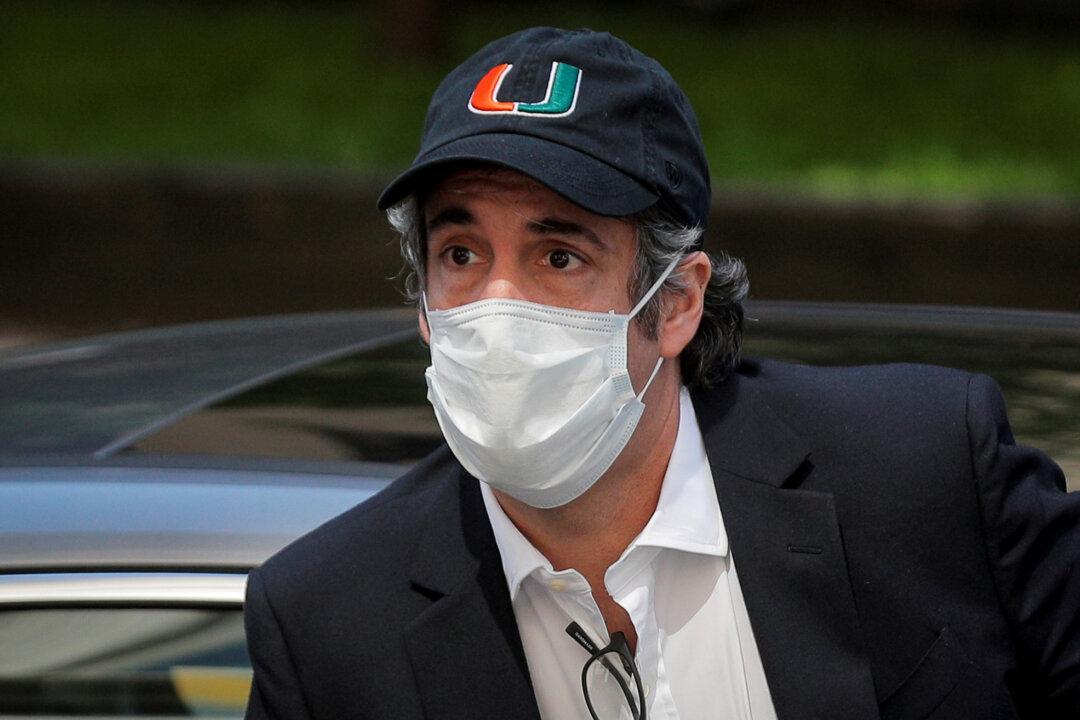President Donald Trump’s former personal attorney Michael Cohen is allowed to write his book, speak to the media, and use social media during the remainder of his sentence in home confinement, according to a new agreement filed on Thursday.
The agreement between Cohen and federal prosecutors did not contain restrictions on the former lawyer’s free speech but requires him to abide by home confinement conditions such as returning to the residential reentry center at least twice a week, not to consume alcoholic beverages, not to own or drive a vehicle without authorization, and remain at his place of residence.




